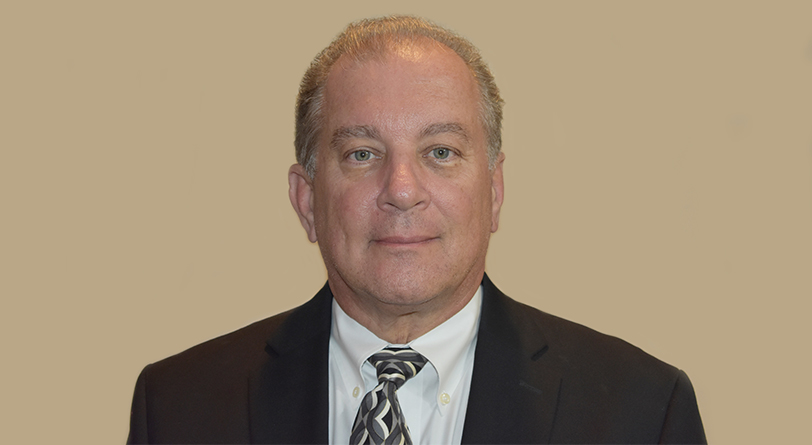U.S. companies approached 2023 with some trepidation. They were still working through challenges with supply chains and recruitment when economic forecasters began eyeing the potential for a recession.
The U.S. economy has proven more resilient than many expected through the early months of 2023, but challenges are still ahead. To get a sense of what they are, FlexPack VOICE® spoke with Paul Harencak, vice president of LPS Industries, LLC in Moonachie, New Jersey. Harencak oversees operations for the ISO-certified, woman-owned materials converter, which makes flexible packaging for the medical, food, military, cosmetic, and industrial markets.
Before joining LPS, Harencak worked in coating and laminating for aerospace and electronics, owned a laminating manufacturing company, and consulted for manufacturers in the chemical coatings industry.
FlexPack VOICE®: What do you see as the biggest issues impacting converters in 2023?
Paul Harencak: The regulatory and environmental environment. There is a lot of push right now for sustainability. It is well understood and accepted, but the infrastructure isn’t entirely there, and it’s creating unnecessary regulatory issues. In New Jersey, there is a ban on single-use plastics. It’s always been my belief that plastics don’t pollute the planet. People do. And I believe that there are ways to educate people as to the best ways to dispose of a product.
FPV: What steps is LPS taking to address some of those issues?
PH: We’re looking at better ways to use materials that are kinder to the environment, which are FDA (U.S. Food and Drug Administration) compliant and use PCR (post-consumer recycled) films wherever we can. We have an ongoing committee on alternative materials looking at developing products without sacrificing quality or usability.
FPV: What are the other top issues?
PH: Number two is labor. Getting people in the door is difficult. I’m sure you hear that everywhere, whether you’re talking to the deli owner or a restaurant or LPS Industries. It is a difficult situation, and it really inhibits your ability to grow.
FPV: Are there areas where it’s harder to find people and some areas where it’s easier?
PH: We are in northern New Jersey, which is a big hub for warehouses. So, finding warehouse workers is a little easier. But finding engineers, salespeople, and skilled operators, even though we have a training program, is becoming more and more difficult.
FPV: Is remote work easing some of that for people in sales or engineering who could potentially work at home?
PH: It’s the way we’ve always operated in sales. But in our environment, where we do design, graphics, printing, laminating coating, slitting, and pouching envelopes, our technical people have to be here. So, we don’t offer a lot of remote work. But we tout the fact that manufacturing is a terrific learning ground for young people and that manufacturing businesses support the local economy. We are high-tech, and we have clean-room facilities. It’s a very clean environment. But the word “manufacturing” still tends to turn people off due to the “dirty smokestack” reputation, which today couldn’t be further from the truth.
FPV: Do you see a growing role for automation as a way to offset some of those needs for people?
PH: We are looking at automation in every possible instance, not to displace people, but to take automation and cross-train that employee to do something else. If we can automate someone’s job and put them into a higher-skilled job, so be it. Cross-training helps us to promote from within.
FPV: What do you see as the impact of continued tensions with China and Russia on packaging but also on manufacturing in general in the U.S.?
PH: Our concerns are tied to the supply chain and energy, not so much for us, but for some of our offshore suppliers. They are seeing supply chain issues. They are seeing energy concerns. So, we’re keeping an ear to the ground to make sure that we have a continued supply of select raw materials. The tension between China and Taiwan impacts shipping, while the ongoing war between Russia and Ukraine impacts energy. We’re also concerned about resin producers in the Texas belt. We went through a very tough time when harsh weather shut down resin plants there. So, we look at the weather, we look at the crisis in Russia and Ukraine, and we’re keeping an eye on what’s going on with China and Taiwan.
FPV: There’s been a lot of talk about reshoring and moving more production back to the U.S. Do you think we’ll be seeing more of that in 2023?
PH: We benefited from some reshoring during the height of the supply chain problem. There has been some return to going offshore. But some customers are growing concerned about what’s going on overseas, so we may see some manufacturing stay in the U.S.
FPV: Do you feel any of these issues will be resolved by the end of the year, or will we still be talking about them in December 2023?
PH: It’s going to continue but not at the magnitude of where we were mid-pandemic. I see signs of some supply chain disruptions lasting, not only in logistics and freight but also in materials. It’s going to be what I’ll call a nagging problem through 2023.
Joel Berg is a freelance editor and writer based in York, Pennsylvania.
